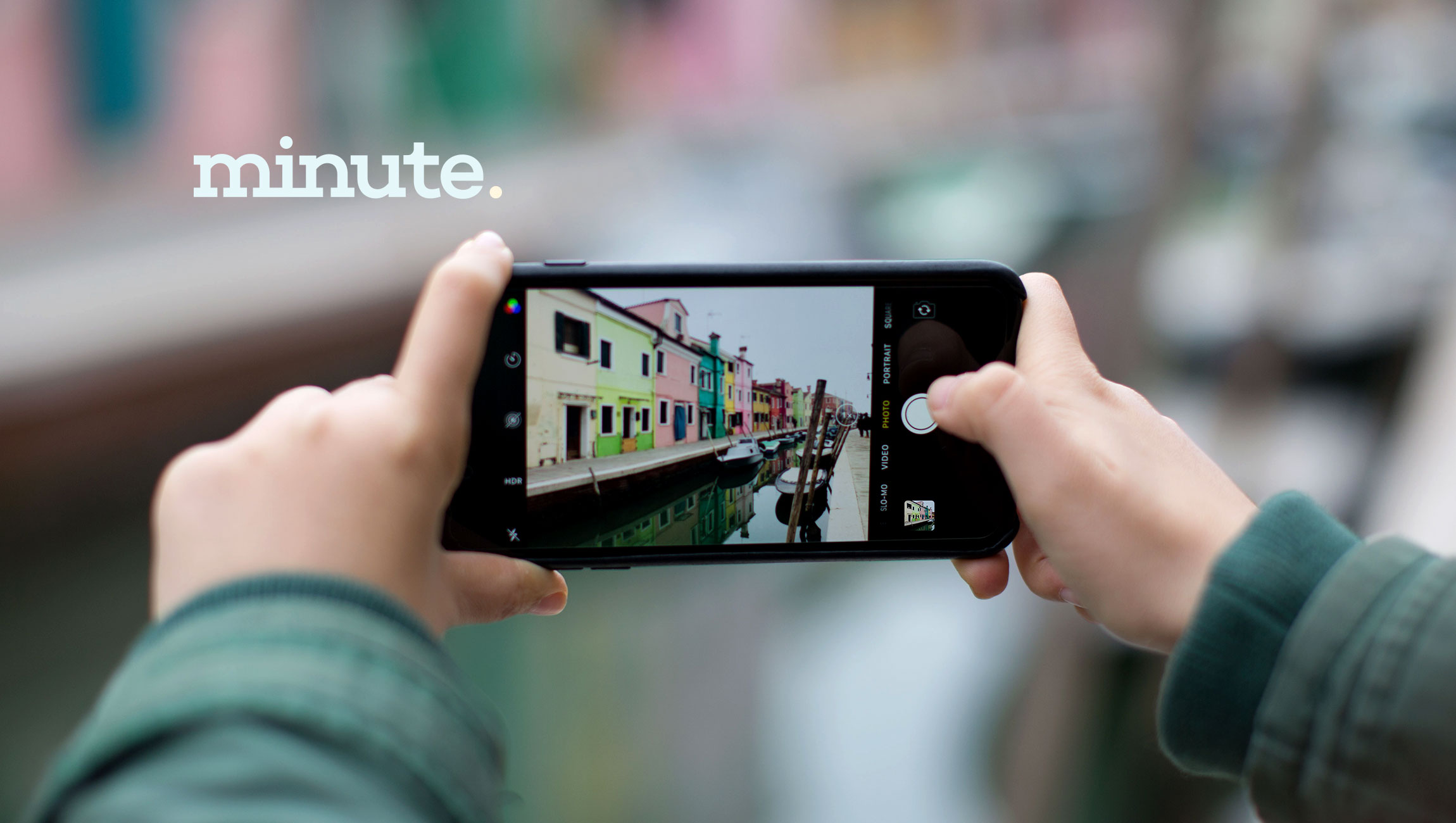Tell us about your journey into technology. How did a US Marine take to entrepreneurship?
I joined the Marine Corps when I was 18 because I wanted to serve and to challenge myself to grow. I got what I wanted and more through my training and my time with a light armored reconnaissance unit. Since then, I’ve always been placing myself in challenging situations because I love the growth and learning that comes from pushing yourself.
In between my stint in the Marines and my current role, I spent time in finance at UBS Investment Bank and Goldman Sachs. It was after my MBA internship with a fund in Singapore that I decided to become an entrepreneur because I felt that I’d be able to learn more by starting my own company.
What is Buzzvil, and how does it fit into a CMO’s tech stack in 2018?
Buzzvil is the largest lockscreen advertising platform in the world. It enables Android app publishers to improve their monetization, engagement and retention. For CMOs, it’s a high impact ad unit that actually reaches users on their most intimate screen, the lockscreen.
More advertising dollars are being shifted toward mobile – and at the same time mobile ads are delivering less user engagement. Mobile marketers are turning to the lockscreen as the next place to interact with users. CMOs are seeing a record number of users opting-in for lockscreen content, and marketing strategies in turn are including that most-often used area of a device. As marketers add incentives such as lower service costs and other rewards for engaging lockscreen content, they are seeing a significant boost in customer engagement.
What are the core tenets of your business development model in mobile advertising ecosystem?
You have to start with a product you truly believe in. That’s the foundation of our business development model. From there, we’re not just aggressive about getting in front of publishers, but getting in front of them with an illustration of what a partnership would look like and the value that they would get from it.
Tell us more about your partnership with Google on putting the first lock-screen apps back into Google Play Store?
Google Play in late 2017 changed their terms and policies around apps that impacted users’ lockscreens, including SDKs such as ours. We worked closely with Google to develop apps that met their policy and allowed users to download the lockscreen content they wanted. We were, of course, concerned that users wouldn’t come back to new lockscreen apps, but to our surprise, the brands that supplemented their apps with new Buzzvil lockscreen apps immediately began seeing more user engagement than ever. The growth of new registered users shot up 200% and with a retention rate increase of 30 percent.
What are the challenges to modern-day mobile advertising?
Viewability and fraud are challenges that are slowly being overcome in mobile advertising. Buzzvil addresses those both. Buzzvil products, as lockscreen content, don’t interfere with a user experience the way in-app video, for example, can cause a viewability issue. And as we have a unique slide gesture, we don’t see users making the accidental clicks on content, which can be an issue for other types of advertising.
How does AI fit into your advertising and content technology offering? What are your major differentiators in the tech-heavy ecosystem?
We have a content hub within our product, similar to Apple News, and we implement AI to determine what news to show our users. As this directly affects their experience with our apps, we want to make sure it’s the most relevant to them.
Our biggest differentiator is our win-win-win business model. Advertisers reach opted-in users who want to see their ads, publishers get increased monetization and retention and users get relevant rewards. It’s a very difficult model to make work, but we’ve found a way to do so over the last 6 years.
How do you prepare for an AI-centric world as a business leader?
Invest in people. We’ve been lucky to have AI-trained engineers from Stanford and other top schools on our team – and the technology may change – but people are at the core of what we do.
What are your predictions on the most impactful disruptions in mobile video and premium programmatic technologies?
The biggest disruptions will be within the infrastructure. 5G will really improve the video experience, pave the way for devices with increased screen sizes, or even create a different alternative to a smartphone – all of which will drive the industry forward.
What startups in the technology industry are you watching keenly right now?
Buzzvil, and the work we do with our partners, has 100% of my focus
What marketing and sales automation tools and technologies do you currently use?
While Google and Microsoft tools are behind most everything we do, when it comes to marketing and automation, we turn to Salesforce.
Could you tell us about an outstanding digital campaign?
Buzzvil’s role in the launch of a four-part, full-funnel strategy for the series premiere of NBC’s Chicago Justice was a standout moment for our company.
We set out to help NBC do a full takeover of the Oscars, introducing the new show to mobile users at the time when the entertainment category was prominent.
It involved a week of targeted lockscreen units, reaching users during the particular time of their day when they actually browse and engage with mobile content. Further, we retargeted users with a message to add a calendar reminder for the premiere of the show to their phone
For the full-takeover during the day when the show premiered, we included tiered creative and exclusivity for NBC across the entertainment/tune-in vertical. The campaign delivered 11 million impressions, 1.4% CTR, over 24,000 calendar reminders set, and a 92% lift in awareness with 55% lift in tune-in consideration.
How do you inspire your people to work with technology?
Inspiring people to work with technology is not something that has been a problem! We provide good reasons to work at our company, where people are surrounded by good teammates, and they are inspired.
One word that best describes how you work.
Focused
What apps/software/tools can’t you live without?
I like to think that if you have the basics, a computer, Gmail, and Microsoft Office, then you can do anything. The will to succeed will trump any other additional tools.
What’s your smartest work-related shortcut or productivity hack?
This isn’t a hack, but fostering a great group of people around you whether it’s your team, friend network or investors will speed up anything you need to get done.
What are you currently reading?
I read the Wall Street Journal daily. Weekly, I read the Economist, and at any given time I’m reading a book about history, psychology, sociology, economics or strategy.
What’s the best advice you’ve ever received?
My mother always told me to be generous to others. She taught me that by giving to others, the generosity naturally comes back to you, somehow. But not if you focus on receiving, just focus on giving.
Something you do better than others – the secret of your success?
I’m resourceful, I never quit, and I’m tenacious.
Tag the one person in the industry whose answers to these questions you would love to read:
Thank you, Robert! That was fun and hope to see you back on MarTech Series soon.
Robert was born and raised in Maryland and went to UMD for undergrad. He joined the US Marines while still studying and in 2003, took a year off to serve with a light armored reconnaissance unit. After his deployment, he received his Bachelors in Economics with a Minor in Math and moved to NYC to work at UBS in investment banking. After a few years, he moved to South America for a year to learn Spanish and to complete an Ironman Triathlon (3.9km swim, 180km bike and 42km marathon). He came back to NYC and worked at Goldman Sachs in their Principal Strategies Group investing around the world and across various industries before receiving an MBA from the Wharton School (University of Pennsylvania). After graduation, he moved to Korea for a year to look for startup ideas and moved back to NYC as the CEO and cofounder of Slidejoy. Slidejoy was acquired by Buzzvil last year. Robert is currently the US CEO of Buzzvil.
Buzzvil was founded in 2012 to develop a more natural and effective advertising platform on mobile. Since then, Buzzvil has grown to become the largest lockscreen advertising platform in the world and has enabled millions of users to connect on mobile through the most intimate and frequently accessed screen – the lockscreen. Buzzvil has four global offices and 80 employees. Buzzvil’s BuzzScreen’ is its main service, an SDK service that enables third- party applications to deliver lockscreen advertising features,. The company additionally offers its own lockscreen reward applications ‘HoneyScreen’ and ‘Slidejoy.’
The MTS Martech Interview Series is a fun Q&A style chat which we really enjoy doing with martech leaders. With inspiration from Lifehacker’s How I work interviews, the MarTech Series Interviews follows a two part format On Marketing Technology, and This Is How I Work. The format was chosen because when we decided to start an interview series with the biggest and brightest minds in martech – we wanted to get insight into two areas … one – their ideas on marketing tech and two – insights into the philosophy and methods that make these leaders tick.



